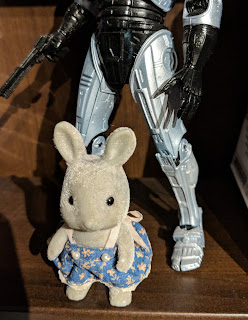The Ballad of Songbirds and Snakes (The Hunger Games)
The Ballad of Songbirds and Snakes (The Hunger Games)
Suzanne Collins, 2020
Premise: This prequel to the Hunger Games trilogy shows the youth of Coriolanus Snow. Explores the impact of war, deprivation, and propaganda on the children of the Capitol - choices are made and paths are set.
I really liked this, but going by the reviews, some people do not understand it. I empathize with a reader who doesn't want to read from the villain's perspective, but some people seem to think the reader is supposed to always identify with the protagonist.
The whole point of this book, as far as I can tell, is that there were a lot of factors shaping the kids in the Capitol, but Snow could have chosen differently. Yes, he was exposed to significant propaganda from a young age. Yes, he was under pressure from his family to be a certain way and from his society to think a certain way. But the book makes a point of showing other characters who find themselves with similar opportunities, and make better choices.
Other Capitol kids, who went through the same war and were taught the same propaganda, start to question what they've been taught. Even if they don't always feel like they can do anything about it, they empathize with the District kids once they get to know them, and by extension, start to get curious about the "truth" of their superiority. (Naturally, this experiment that allowed the Capitol kids to get to know the District kids is deemed a failure and not repeated.) Not all the kids change their attitudes, but some of them do. Some of them are jerks throughout. Snow is interesting because he could have taken a different turn and ended up in a more moral place.
He's like a man who doesn't acknowledge that women are people until it's spelled out that he has a mother/sister/whatever direct relation and maybe he should care whether they are treated well. But even after that, this type of person only acknowledges that his women are people.
It's the possessive streak that ultimately sends him down the dark path. He identifies so strongly with being Capitol, with being Snow, with being better than anyone else. When he realizes he likes Lucy Gray, he decides not that District people are people who deserve respect and dignity, but that she is special, and she could become Capitol so she could become his.
Lucy gives him the benefit of the doubt. After he does a lot to help her, she tries to understand him, tries to love him. By the end, she probably (we never get her full perspective) realizes that he doesn't love her at all, just loves the idea of possessing her. She's pretty interesting and awesome. She just does everything with her whole heart. She's capable of being sneaky, but not manipulative. She never really understands what Snow sees in the values of the Capitol, so she doesn't realize how much of his attitude and beliefs he's hidden from her.
Honestly, the only tiny thing that holds it back from 5 stars for me is that the ending wasn't quite satisfactory. To be clear, I think it's the right ending, but it just didn't 100% land for me.
It's a great exploration of the seductive narrative of privilege and rising to (or failing to rise to) the challenge of morality in a fledgling dictatorship.
4 Stars - A Very Good Book



Comments
Post a Comment
FYI: Most comments are moderated, and will not appear immediately.